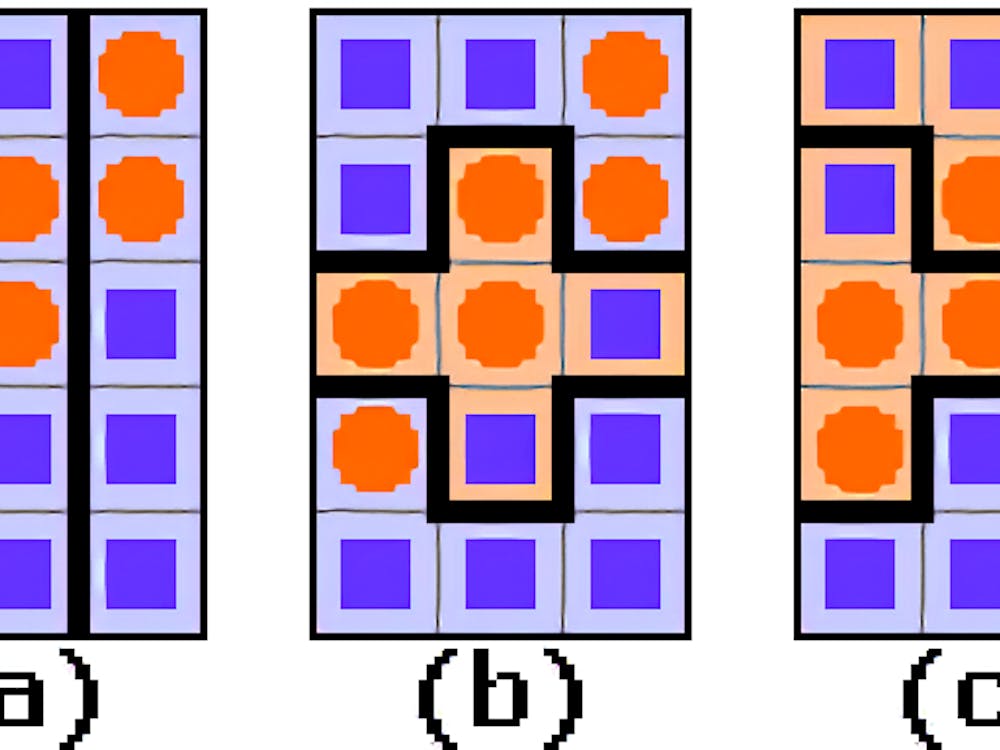Social media is increasingly influencing political discourse, and TikTok is no exception, becoming home to political content for its 1 billion monthly users. However TikTok’s structure, algorithm and moderation are inherently hostile to productive political discussions and instead encourage extremism.
TikTok's algorithm ensures users are exposed to the same political views they already agree with. After users like a video about Second Amendment rights or follow the tag “democrats,” they will be much more likely to see those types of videos again and again, creating a political echo chamber where one’s views are reinforced rather than challenged.
Tags on TikTok are helpful for tailoring the content we consume to our interests and hobbies. For example, our own Barnes & Noble has a display dedicated to BookTok, a community on the app where reading enthusiasts share book recommendations. But when it comes to important processes like politics, individuals must be careful and intentional about their use of the app.
An experiment conducted by VICE’s Motherboard using a new TikTok account found that after a couple days of liking and engaging with exclusively conservative content, the For You page was filled with conservative and far-right videos — including QAnon conspiracies and Donald Trump content.
Some individuals might believe that by using TikTok, they are not limiting themselves as they would be by only watching Fox News or only watching left-leaning media. But in reality, the TikTok algorithm is similar or arguably worse in creating an echo chamber of ideas, because there are no journalistic standards or accountability, unlike traditional news media.
Clearly the algorithm is not conducive to political discourse, but it’s working as it should be in terms of recommending content users will enjoy. TikTok was simply not built to be a mode of political discourse, with the company admitting so itself, emphasizing that it is “first and foremost an entertainment platform” amid recent policy updates for political accounts. Despite this, politics have permeated TikTok’s culture.
In my experience with TikTok, the nuance of politics is lost. Buzzwords are privileged over reasonable and complex arguments. Short videos with outrageous and uncomplicated claims will gain more traction than longer videos discussing more detailed evidence and viewpoints.
In my time using the platform, I’ve also seen a weak inclusion of moderate perspectives, despite the fact that recent polls show over a third of Americans identify as politically moderate. Extreme takes are rewarded with more views, likes and shares. From what I’ve seen, the clips that go viral on TikTok over-simplify complicated and historically debated political positions into black-and-white stances and present one side as unequivocally right or unequivocally wrong.
About two years ago, a TikTok trend called “No Nuance November” encouraged TikTok users to post their political hot takes with no nuance and no explanation. On a platform where short-form content — which limits meaningful political dialogue — is already the standard, trends like “No Nuance November” further discourage meaningful discussion of why certain positions are taken and fail to consider the reasoning of the other side.
Though TikTok offers the ability to upload longer videos, many users prefer to watch 15 to 60-second posts. Short content on TikTok is inherently limited on what it can share and thus often maximizes its impact by painting certain political positions as indubitably correct, ignoring that it’s important to understand why the opposition holds a different position.
It should be stated that TikTok’s ownership and censorship are also problematic. The company has allegedly blocked content critical of the Chinese government and enabled Russia to spread pro-war rhetoric. TikTok as an app has its own agenda in its moderation policies, which is dangerous considering how moderation steers global political discourse on the platform.
Ultimately it is unlikely teens will stop using TikTok for politics, but it is critically important that they do not base their political opinions or voting habits on the views presented to them solely on TikTok and make efforts to purposefully engage with diverse political content. The most important thing in a democracy is a knowledgeable electorate, and TikTok is not conducive to this goal.
Samhi Boppana is a sophomore from Dublin, Ohio majoring in Molecular & Cellular Biology and Political Science.





